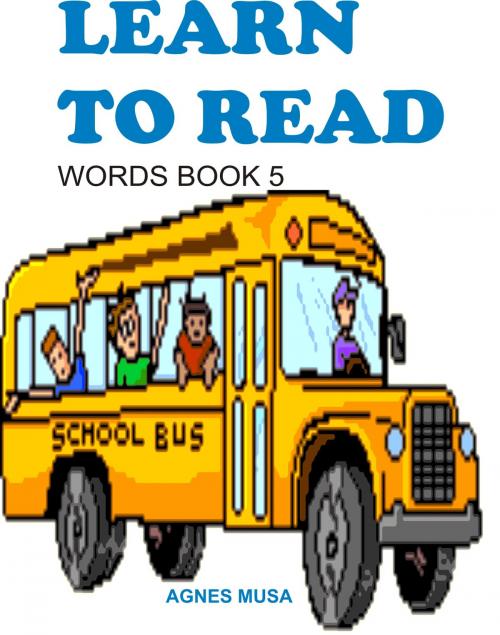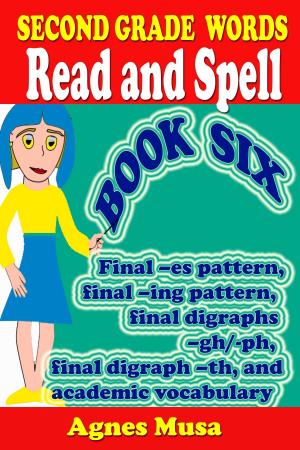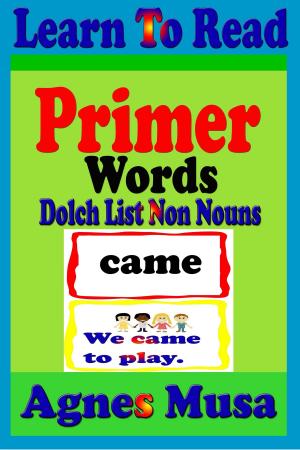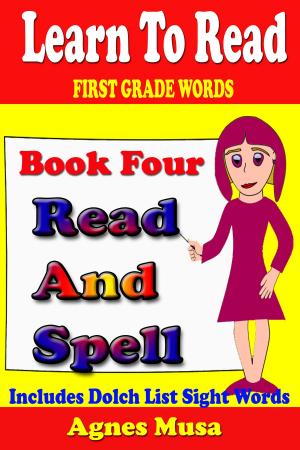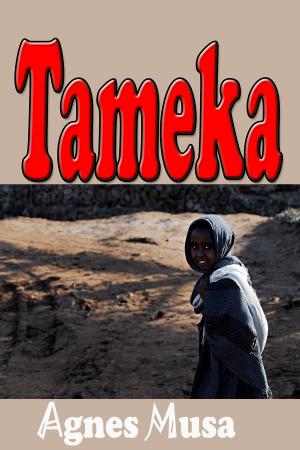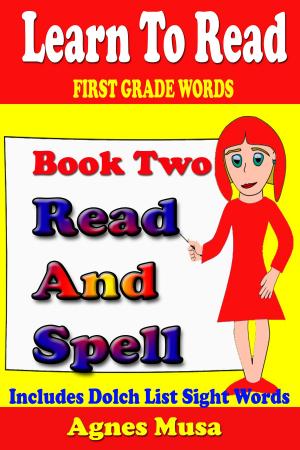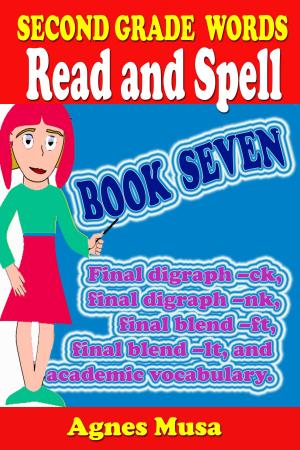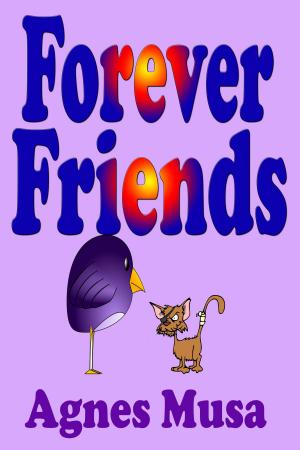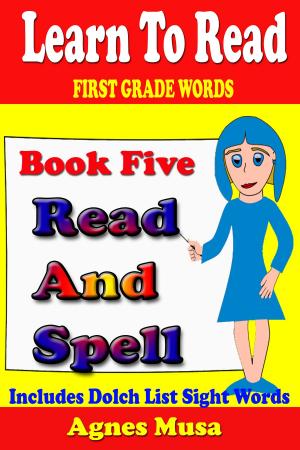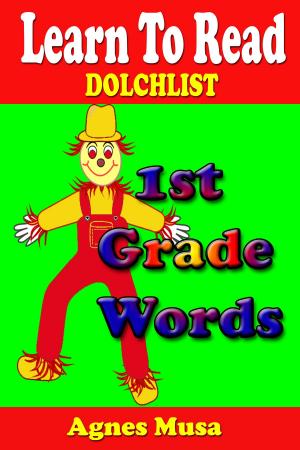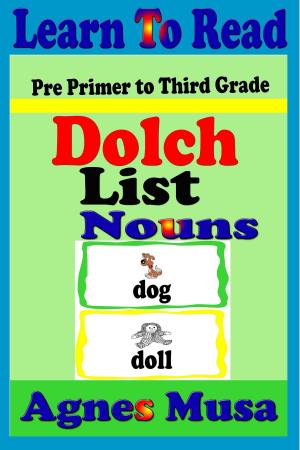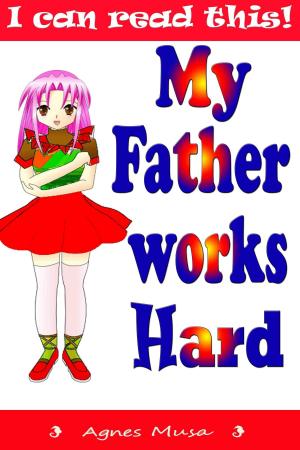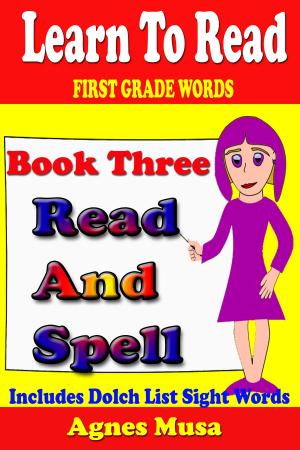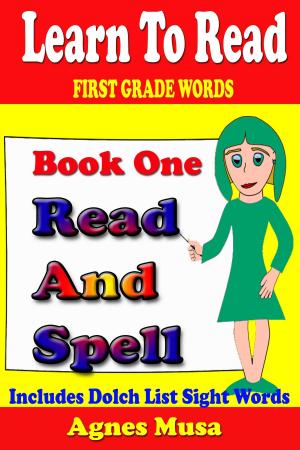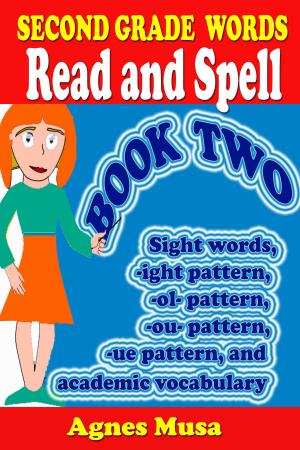| Author: | Agnes Musa | ISBN: | 9781301380497 |
| Publisher: | Agnes Musa | Publication: | October 3, 2013 |
| Imprint: | Smashwords Edition | Language: | English |
| Author: | Agnes Musa |
| ISBN: | 9781301380497 |
| Publisher: | Agnes Musa |
| Publication: | October 3, 2013 |
| Imprint: | Smashwords Edition |
| Language: | English |
This ebook, the last in a series of five books, is based on the words three, to, two, up, we, where, yellow and you, of the, of the Dolch List Sight Words at pre primer level.
Book one through to book four of this series, are also available here and, I hope you get a chance to go through them with your child because the educational children's books I write, like this book, are written to help children learn the words which form the building blocks to reading.
This particular series of books focuses on the Dolch List. The books are written using words from this list, with a view to mastering these words, and helping your child learn how to read. That is why, it is very important for parents who buy these books, to help their children through all five books from book one to five, to enable the children to learn the basics correctly, through familiarising of words and repetition.
The Dolch word list is a list of frequently used English words compiled by Edward William Dolch, a major proponent of the "whole-word" method of beginning reading instruction. The list was prepared in 1936 and was originally published in his book Problems in Reading in 1948.
The list contains 220 "service words" that have to be easily recognized in order to achieve reading fluency in the English language. The compilation excludes nouns, which comprise a separate 95-word list. Between 50% and 75% of all words used in schoolbooks, library books, newspapers, and magazines are a part of the Dolch basic sight word vocabulary.
The words in this ebook are used with illustrations and are aimed at children who now need to concentrate and focus on mastering reading.
This is book five so, WELL DONE! You have gone through the entire Dolch List.
If your child did not master everything on the first reading round, please do not despair. Children have different learning patterns and ability. Learning comes easily to some, but a little harder and or slower to other children.
So where possible, please go through the entire five books with the child again. As the child becomes more confident, they will want to read the books on their own, and, to you. When they start to do this often, congratulations! It is time to introduce other simple to read books.
To your child's reading success!
This ebook, the last in a series of five books, is based on the words three, to, two, up, we, where, yellow and you, of the, of the Dolch List Sight Words at pre primer level.
Book one through to book four of this series, are also available here and, I hope you get a chance to go through them with your child because the educational children's books I write, like this book, are written to help children learn the words which form the building blocks to reading.
This particular series of books focuses on the Dolch List. The books are written using words from this list, with a view to mastering these words, and helping your child learn how to read. That is why, it is very important for parents who buy these books, to help their children through all five books from book one to five, to enable the children to learn the basics correctly, through familiarising of words and repetition.
The Dolch word list is a list of frequently used English words compiled by Edward William Dolch, a major proponent of the "whole-word" method of beginning reading instruction. The list was prepared in 1936 and was originally published in his book Problems in Reading in 1948.
The list contains 220 "service words" that have to be easily recognized in order to achieve reading fluency in the English language. The compilation excludes nouns, which comprise a separate 95-word list. Between 50% and 75% of all words used in schoolbooks, library books, newspapers, and magazines are a part of the Dolch basic sight word vocabulary.
The words in this ebook are used with illustrations and are aimed at children who now need to concentrate and focus on mastering reading.
This is book five so, WELL DONE! You have gone through the entire Dolch List.
If your child did not master everything on the first reading round, please do not despair. Children have different learning patterns and ability. Learning comes easily to some, but a little harder and or slower to other children.
So where possible, please go through the entire five books with the child again. As the child becomes more confident, they will want to read the books on their own, and, to you. When they start to do this often, congratulations! It is time to introduce other simple to read books.
To your child's reading success!
